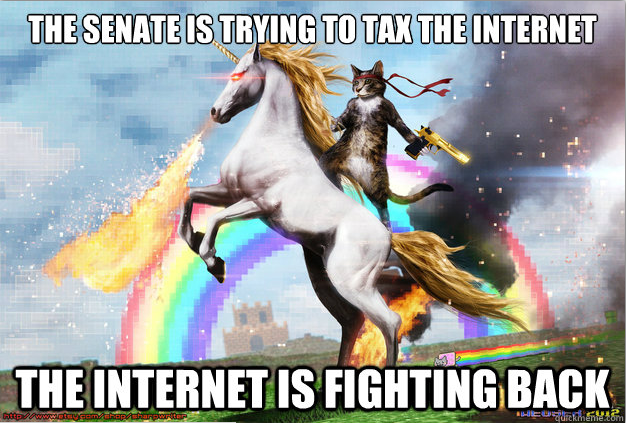Many of my friends have been discussing the movie The Purge. I haven’t seen it yet because I’m not a fan of siege movies (unless it’s Judge Dredd performing the siege because, well, he’s fucking Judge Dredd) but I’ve been informed about the concept. The Purge plays with the idea of a society where all laws are suspended for a 12-hour period. Several people have noted that the movie demonstrates why anarchism can’t work. Setting aside the fact that people are using a fictional movie to argue against a real societal philosophy we’re still left with the fact that the idea of The Purge, that a period of lawlessness will result in unimaginable violent crime for that entire period, is absurd.
Judging by the movie’s preview and statements my friends have made about the movie, I’m lead to believe weapons are no prohibited The Purge’s version of the United States. In fact it appears as though prohibitions against weapon ownership are nonexistent, at least for the 12-hour period where all law is suspended. Knowing that an annual purge takes place I’m also lead to believe that most people would acquire weaponry to defend themselves, which would likely mean the cost of violence would increase greatly.
Today the cost of performing violent acts in the United States is pretty low. Most people don’t carry weapons on their person and many people either own no weapons or are prohibited from possessing them. In addition to that the general attitude towards violent crime held in America is to let the police deal with it. We’re told not to intervene when we encounter a violent crime and can actually face legal repercussions for doing so. Such an attitude gives violent criminals a good sized window of time to commit their violent act, before dealing with possible resistance (because the police can’t teleport to a location instantly). In a society where all law was suspended for a 12-hour period every year, people would likely arm themselves so they could defend their lives during the lawless period. The cost of violence would increase, which would have the likely affect of discouraging violent crime. Violent criminals generally exploit the fact that they are unlikely to encounter notable resistance while committing a violent crime. When they chances of notable resistance increases it discourages violent criminals from performing violent crimes.
In addition to the likely increase in arms that would occur in a society where no laws were enforced for a 12-hour period there is also the social roadblocks between criminals and crimes. Humans are generally social creatures. We form relationships and those relationships influence our actions. For example, friends and families are likely to help one another. How many people would stand idly by while somebody attempts to murder their mother, father, sister, or brother? How many people would look the other way while one of their friends was killed? In most cases the family member of friend would intervene because they have a vested interest in defending the would-be victim.
If a period of lawlessness was declared by the state, local communities would ban together to defend each other. My claim isn’t unprecedented. The Los Angeles riots were, effectively, a period of lawlessness. During that time period members of the community referred to as Koreatown banned together, loaded their rifles, and defended their community from marauding rioters.
Many people believe that the state is the only thing that separates society from complete collapse but those people are ignorant of history. Consider the American Old West. Hollywood portrays the time period as one of great violence but the actual Old West was notable for two things. First, the state was absent [PDF]. Second, there was a very low rate of violent crime. Medieval Iceland is another example of a society that enjoyed freedom from a state and a low rate of violence. Unlike much of Europe during the time period between the years 1000 and 1300, Iceland had no civil wars because its society was based primarily on arbitration. Violence wasn’t absent but it was mostly ritualized, which helped keep it under control compared to many other societies of the time.
What makes society possible is the general tendency of humans to form communities. Though that tendency we choose mutual cooperation of exploitation most of the time. If the state declared a period of lawlessness communities would simply take responsibility for enforcing laws against violent crime themselves. A realistic version of The Purge would likely involve an increase in cannabis smoking for a 12-hour period followed by run on the local grocery stores to buy up all the Doritos. I would even predict that violent crime would decrease since the police would be roaming the streets and initiation violence against nonviolent individuals.
Edit: 2013-06-11: 20:39: Corrected a few grammatical mistakes graciously pointed out by Steven.
